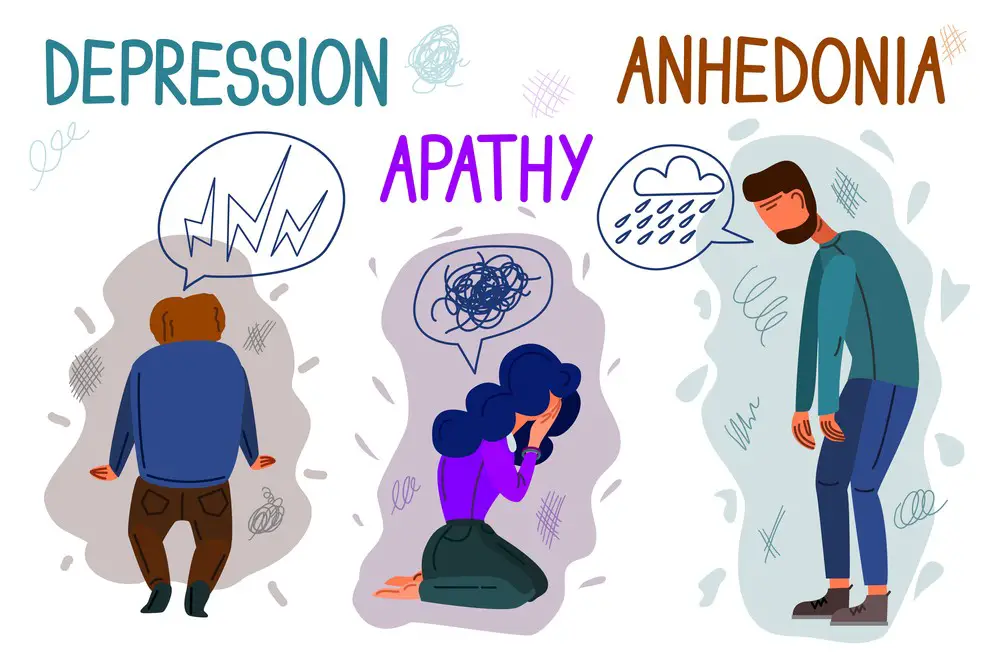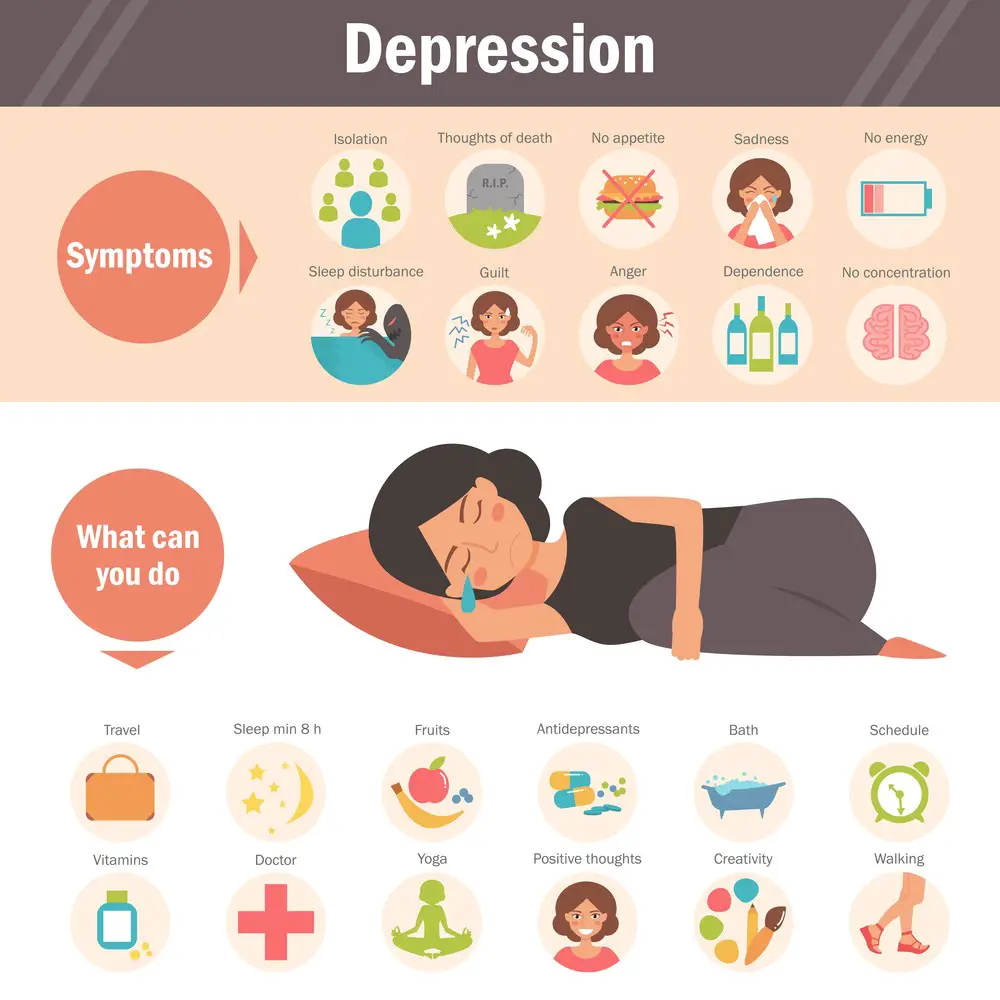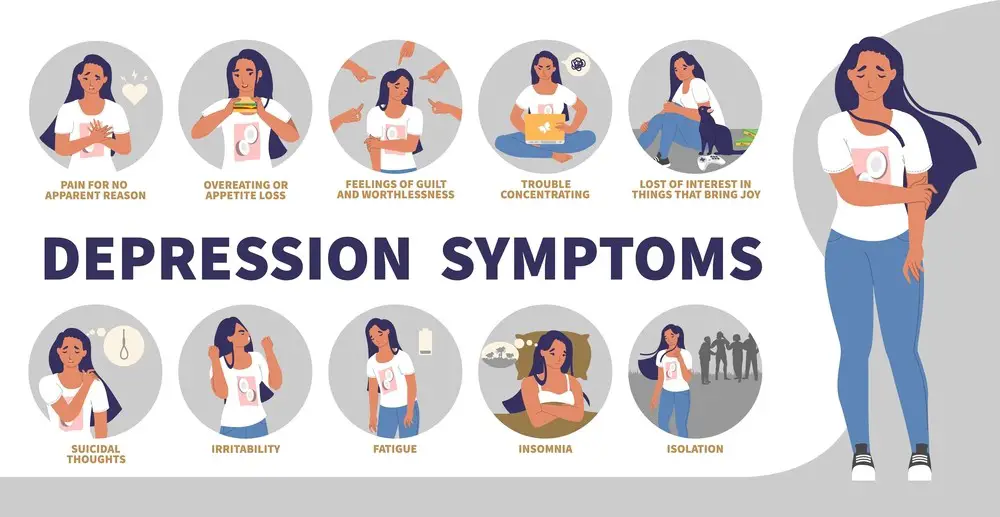As a BetterHelp affiliate, we receive compensation from BetterHelp if you purchase products or services through the links provided
Depression doesn’t have to silence you. Taking time off for mental health is not only acceptable but essential. Yet, articulating your needs can feel overwhelming. Don’t fret; you have the right to prioritize yourself. In this guide, we’ll empower you with the exact words and strategies to communicate your needs when calling in sick with depression confidently. We’ll navigate this conversation with your employer, ensuring your well-being takes center stage.
It’s crucial to approach this conversation honestly while maintaining the appropriate level of professionalism. Your employer may be unaware of your mental health struggles, so it’s essential to be clear and concise. By expressing your needs and working with your employer, you’ll create a supportive environment for your recovery and work life.
Key Takeaways
- Honestly express your mental health needs and request time off from work
- Maintain professionalism while effectively communicating with your employer
- Prioritize self-care and build a supportive environment for recovery
Recognizing the Need to Call in Sick
 Understanding Your Depression
Understanding Your Depression
Depression is a mental health condition that affects millions of people worldwide. It can manifest as overwhelming sadness, a lack of motivation, hopelessness, and even physical symptoms. When experiencing a depressive episode, it’s essential to acknowledge its impact on your daily life, including your work performance. Recognizing the need to call in sick because of depression can be a significant step toward self-care and recovery.
Impact on Productivity
Depression can cause a considerable decline in your productivity. You may experience difficulties concentrating, making decisions, or maintaining your usual work pace. While calling in sick due to depression might not be a decision you take lightly, consider how your mental health affects your ability to perform your job and the overall work environment. Taking care of your mental health is a priority; sometimes, a day off can provide the necessary time for self-reflection and self-care.

Physical and Emotional Symptoms
Depression often has many physical and emotional symptoms, such as fatigue, appetite changes, sleep disturbances, irritability, and anxiety. Pay attention to these warning signs, as they indicate that your mental health affects your overall well-being. If you find these symptoms negatively impacting your work life, it’s important to acknowledge the need for a mental health day. Remember, your well-being comes first, and taking the time to address your depression can positively influence both your personal and professional life.
Preparing to Communicate Your Needs
Planning Your Dialogue
Before calling in sick with depression, it’s essential to prepare what you want to say. Think about how you’ll discuss your situation with your employer or supervisor. Since the topic may be sensitive, choosing your words carefully is essential. Be honest about your condition and its impact on your work. For example, you could mention that you’re experiencing a depressive episode, affecting your ability to work effectively or safely. When discussing the time off you need, estimate how long you expect to be away, but also be flexible and open to reassessing your situation.
Managing Guilt and Stigma
It’s natural to feel guilt or shame when calling in sick with depression due to mental health stigma. Remember, you deserve the same support and empathy as someone with a physical illness. To cope with these negative feelings, remember that taking care of your mental health is important for your overall well-being and performance at work.
While communicating your needs, avoid using self-blaming language and try to be objective about your situation. Share your feelings with a trusted friend or practitioner who can help you work through your guilt and offer guidance on addressing the stigma in a professional environment.
In conclusion, preparing to communicate your needs when calling in sick with depression involves planning your dialogue and managing feelings of guilt and stigma. It’s essential to approach the conversation honestly, clearly, and aware of your rights to support and empathy at work.
 Making the Call to Your Employer
Making the Call to Your Employer
What to Say
When calling in sick due to depression, it’s important, to be honest and considerate of your employer’s need for information regarding your absence. You could say, “I’m not feeling mentally up to coming in today, and I need to take a day off to recover.” Make sure to let your supervisor or manager know if you have an ADA-protected condition, as this can help mitigate any potential concerns about your absence.
You don’t need to go into too much detail about your mental health, but mentioning that you’re having a particularly difficult time and need to focus on self-care could be helpful. For example, “I’m struggling to get my head in the right frame of mind, and I need some time away from work to sort things out.”
What to Expect
When calling in sick with depression, it’s good to be prepared for different responses from your organization. Some employers may be understanding and supportive, while others might be more skeptical or require further information to understand that this is a real need.
If your manager or supervisor understands, they may ask when they can expect you to return to work and if they can do anything to support you. On the other hand, if they are reluctant or require more information about your absence, it might be necessary to provide some documentation, like a note from a healthcare professional (try to view this from their perspective).
Remember, it’s your right to take care of your mental health, and most organizations value the well-being of their employees. Being upfront and honest with your employer about your need for a mental health day can help ensure a smoother process and give you the time you need to focus on your well-being.
Keep in mind that communication is key during this process. Ensure you update your supervisor or manager on your situation and provide any necessary documentation or information on time. Clear and open communication can help maintain a positive relationship with your employer while you focus on taking care of yourself.
Knowing Your Rights
The ADA and Mental Health Condition
The Americans with Disabilities Act (ADA) recognizes mental health conditions, including depression, as disabilities. This means that you have certain rights and protections in the workplace. For instance, it is illegal for your employer to discriminate against you because of your mental health condition, such as firing you, rejecting you for a job or promotion, or forcing you to take leave.
Applying for Reasonable Accommodation
Under the ADA, you are entitled to request reasonable accommodations from your employer. This can include flexible work hours, time off for appointments or therapy, or working from home when needed. Discuss your needs with your supervisor or human resources department to request reasonable accommodation. Be sure to mention that your request is related to a disability under the ADA so they understand the context and legal obligation.
Being specific and clear about what you need is important when requesting accommodations. You may want to provide documentation from your healthcare provider to support your request, but remember that your privacy is protected by law, and your employer should respect it.
Remember that your employer has the right to request certain information to process your accommodation request. However, they cannot ask for excessive or overly invasive information about your condition. Your employer must also engage in an interactive process, which means they should work with you to find a suitable accommodation that meets both your needs and the company’s requirements.
By understanding your rights under the ADA and the process for requesting accommodations, you can ensure that your workplace supports your mental health needs while respecting your privacy and legal protections.

Coping Mechanisms and Self-Care
Seeking Professional Help
If you’re struggling with depression and find it difficult to cope, don’t hesitate to seek help from a therapist or another mental health professional. They can provide valuable guidance, support, and resources to help manage your mental health. Working with a professional can help you build healthy coping strategies and address issues contributing to your depression.
When looking for a therapist, research and find one that fits your needs, remember, you deserve to prioritize your mental health and well-being.
Support Groups
Support groups can be an excellent way to connect with others experiencing similar challenges. These groups offer an environment where you can share your feelings, learn new perspectives, and practice active listening. Participating in a support group can help reduce feelings of isolation and provide a sense of belonging.
In addition to in-person support groups, online forums and social media groups dedicated to mental health can also offer valuable resources and encouragement.

Self-Care
Practicing self-care is essential for maintaining and improving your mental health. This can include regular exercise, leisure time in nature, hobbies, or simply taking time for yourself. Customize your self-care routine to cater to your personal preferences and well-being needs.
Here are some self-care activities that can help:
- Create a daily routine
- Prioritize sleep and relaxation
- Eat a balanced diet
- Stay connected with loved ones
- Practice mindfulness or meditation
Remember, taking care of your mental health is an ongoing process, and staying motivated and committed to your well-being is important. Contact professionals and support groups to find the resources and help you need on your journey.
Possible Challenges and Difficulties
Overcoming Stigmas
Dealing with depression can be challenging, especially when taking time off work. One of the main issues you might face is the stigma surrounding mental health. It might be difficult for some people to understand that just like a physical illness, sometimes depression requires taking a break to recover.
To manage these stigmas, it’s crucial to educate yourself and others about depression and its impact on your ability to function. Remember that your mental health is vital for your overall well-being.
Furthermore, it’s helpful, to be honest with your employer and let them know you’re struggling without diving into too many specifics. Incorporate some suggested phrases like, “I’m really sorry. I know this is short notice, but I won’t be able to come in today. My depression is getting the better of me right now, I’ll be in touch.”
Planning Your Return
When you take time off work due to depression, planning your return diligently is important. This includes considering factors such as workload, schedule, and any potential triggers related to trauma, alcohol, or abuse.
- Workload: Upon returning, set realistic expectations with your employer about what you can manage. Prioritize tasks in a manageable way and gradually ease back into your routine.
- Schedule: Returning to a full-time schedule might feel overwhelming. Discuss a gradual or modified work schedule with your employer to ensure a smooth transition.
- Trauma, Alcohol, and Abuse: If certain factors in your workplace contribute to your depression, such as a history of trauma, alcohol, or abuse, it’s essential to find ways to cope or seek assistance. This might include speaking to a mental health professional or seeking additional resources within your workplace or community.
Remember, prioritizing your mental health is important. Communicate openly and honestly with your employer; don’t be afraid to ask for support.
Final Thoughts
Taking time off when struggling with depression is crucial for your mental health and overall well-being. It lets you focus on your well-being, enabling hope, growth, and recovery. Remember, you have the right to prioritize your mental health just as much as your physical health.
As you call in sick due to depression, remember to be honest with your employer about your condition and explain how it’s affecting your ability to work. Let them know your expected time off and, if applicable, provide a doctor’s note. Your mental health is important, and taking time off to recharge and recover is crucial.
During your time off, focus on self-care and consider contacting mental health professionals, friends, or family for support. Encourage growth and healing by engaging in activities that bring joy and promote relaxation. Remember that recovery is a process; don’t be too hard on yourself.
In conclusion, as you navigate this challenging time, be kind to yourself, and remember that taking the time to address your mental health is a necessary and important step in your journey towards hope, growth, and recovery.
 Recognizing the Need: When to Seek Professional Help for Your Mental Well-being
Recognizing the Need: When to Seek Professional Help for Your Mental Well-being
Mental health is an intricate and delicate aspect of our lives. Sometimes, we can manage stressors independently or with the support of friends and family. However, there are instances where professional intervention becomes vital. Knowing when to seek professional help can be the key to recovery and well-being. Here’s when professional help may be essential:
- Persistent Symptoms: If feelings of sadness, anxiety, or depression persist for an extended period and interfere with daily life, professional therapy or counseling may be necessary.
- Intensified Emotions: When emotions become too intense and overwhelming, making it hard to cope, professional help can provide the needed support and strategies to manage them.
- Substance Abuse: Turning to drugs or alcohol to manage feelings may signal a deeper issue that requires professional intervention.
- Suicidal Thoughts or Self-Harm: These are critical signs that immediate professional assistance is needed.
- Impact on Relationships and Work: If mental health issues affect relationships, work, or school performance, therapy might provide the tools to navigate these challenges more effectively.
Seeking professional help is not a sign of weakness but a courageous step towards healing and understanding oneself better. Therapists and mental health professionals are trained to create a safe space where you can explore your feelings and develop strategies to move forward. It’s about building a partnership that fosters growth, self-awareness, and resilience. Whether it’s talk therapy, medication, or a combination of treatments, the right professional can guide you through your unique journey toward better mental health.
Frequently Asked Questions

How can I request a mental health day?
Communicate openly and honestly with your supervisor or HR manager to request a mental health day. Start by explaining that you need time off for personal reasons without going into too much detail. You can mention that you need the day to recharge and improve your mental well-being. Remember, taking a mental health day is entirely valid, and you should feel no shame in asking for one when needed.
What’s the most appropriate way to inform my boss about my mental health?
The best approach is to find a time for you and your boss to discuss the matter privately. Be honest about how you’re feeling and its impact on your work. Remember to keep the conversation professional and focus on how this time off will improve your productivity and well-being. It’s essential to maintain open and respectful communication with your employer.
Can I obtain documentation for a sick day due to depression?
Yes, if you’re under the care of a mental health professional, you can request documentation for your sick day due to depression. Speaking with your healthcare provider about your situation and your need for time off is essential. They can provide the necessary paperwork to prove that your absence is valid and necessary for your mental health recovery.
Are there specific phrases I should use when discussing mental health with my employer?
When discussing mental health with your employer, using respectful and non-stigmatizing language is essential. Some examples of phrases you can use when calling in sick with depression are: “I need to take a day off for personal reasons,” “I need some time off to recharge,” or “I’m feeling overwhelmed and need to prioritize my mental health.” For more examples, you can refer to this source.
How can I make my doctor understand my situation?
To ensure your doctor fully understands your situation, be as open and honest as possible about your symptoms, thoughts, and feelings. Explain how depression is affecting your daily life and your ability to perform at work. Be sure to mention any specific stressors or triggers contributing to your depression. This information will help your doctor determine the best course of action and provide you with appropriate support and treatment.
What are my workplace rights regarding mental health sick days?
Your rights regarding mental health sick days will depend on your country and specific workplace policies. In most cases, employees have the right to take time off for medical reasons, including mental health issues. It’s essential to familiarize yourself with your company’s sick leave policies and relevant regulations in your area. You may sometimes have additional protections, such as the right to request reasonable accommodations or protection under disability laws. If you’re unsure about your rights, remember to consult your HR department or an employment lawyer.
About the Author: Jacob Maslow – A Journey Through Healing and Advocacy
I’m Jacob Maslow, a mental health advocate, therapy veteran, and writer who’s walked the rocky path of mental wellness. Living with the weight of a tumultuous past, I’ve faced personal challenges, including a court battle with an ex-spouse suffering from severe narcissism, leading to years of struggle over shared custody of our two minor children. The pain of alienation and broken communication lines with my kids has been a constant fight.
Managing my mental health has become central to my life. I take Lexapro and embark on long, contemplative walks daily to clear my head. The battle has been real, but my determination has been my saving grace.
Writing has been my channel to reach out to others facing similar struggles. Through articles about mental health, narcissism, and the legal quandaries that sometimes accompany these issues, I aim to help those grappling with mental health challenges and non-cooperative spouses. I believe anyone can overcome mental health issues with persistence, support, and strategies.
My journey has also led me to launch a legal site that serves as a lifeline for others dealing with spouses who refuse to comply with court orders. Here, I share insights, provide support, and offer solutions to those who feel weaponized by the systems meant to protect them.
My story is one of resilience and hope, aimed at guiding others to find their strength in the face of adversity. If I can overcome these challenges, so can you. Together, we can navigate the intricate paths toward healing and empowerment.
- Breaking the Silence: Why Men’s Mental Health Matters More Than Ever - April 15, 2025
- How to Transform a Home’s Patio Space into a Relaxing Space - March 23, 2025
- 5 Strategies to Use a Cell Phone to Help Manage Your Stress - March 23, 2025
This site contains affiliate links to products. We will receive a commission for purchases made through these links.


 Understanding Your Depression
Understanding Your Depression Making the Call to Your Employer
Making the Call to Your Employer
 Recognizing the Need: When to Seek Professional Help for Your Mental Well-being
Recognizing the Need: When to Seek Professional Help for Your Mental Well-being
